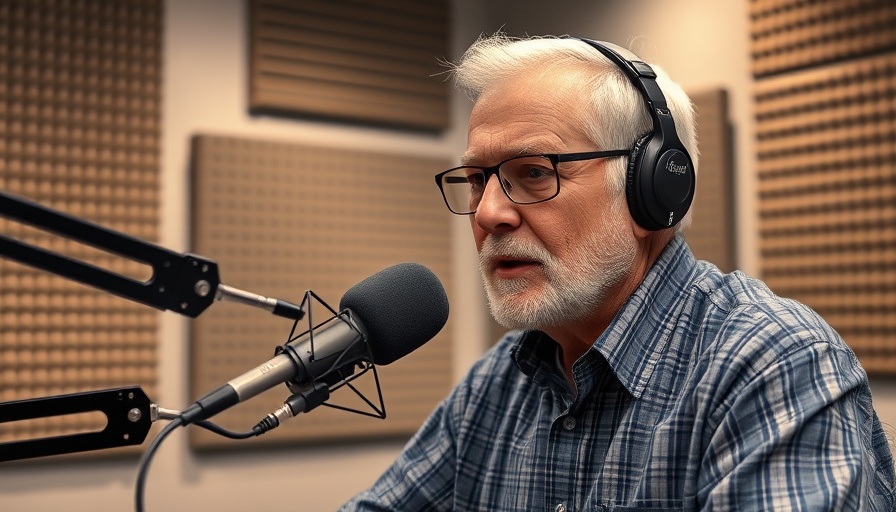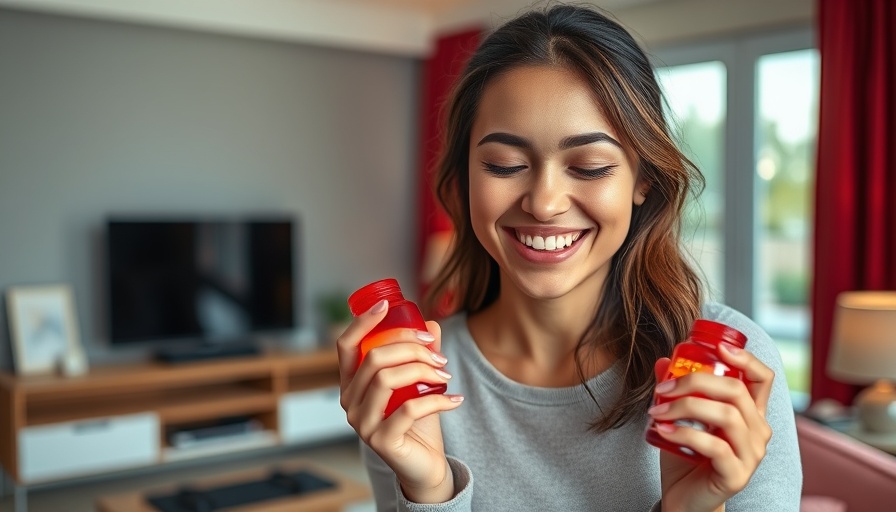
The Urgency of Addressing Plastic Pollution
As we navigate our daily lives, it's almost impossible to avoid single-use plastics—be it a morning coffee cup or a takeout food container. These convenient items have become a part of our routine, yet their environmental toll is severe. The statistics are alarming: according to the EPA, the U.S. generates about 35.7 million tons of plastic waste annually. With most plastics taking centuries to decompose, a significant portion ends up breaking down into dangerous microplastics that seep into our environment, impacting human health and ecosystems alike.
Understanding Microplastics: A Small But Mighty Threat
Microplastics, defined as tiny plastic fragments under 5 millimeters, have infiltrated every corner of our planet. The World Economic Forum's 2024 Global Risks Report lists microplastic pollution as one of the top global threats, calling for immediate action. Incredibly, it’s estimated that the plastic recycling process alone could release up to 400,000 tons of microplastics annually in the U.S. Every year, up to 23 million tons of plastic waste flows into our waterways, shaping an epidemic that cannot be ignored.
From Composting to Reusable Solutions: A Better Way Forward
While recycling has long been touted as a solution to the plastic crisis, its effectiveness is dubious at best. Compounding the issue is the fact that numerous studies indicate that only 9% of all plastic is recycled, and recycling processes may further contribute to the problem rather than alleviate it. This sparks a discussion about alternative solutions, particularly composting and the introduction of reusable products.
How Reusable Cups Make a Difference
Here lies the innovation of Better For All's reusable cups, designed to help mitigate the harmful effects of single-use plastics. These cups are not only made from sustainable materials but are also compostable, meaning they can break down into non-toxic components as opposed to adding to the plastic pollution crisis. As individuals increasingly seek ways to align their purchases with environmental values, products like these may offer a viable solution.
Opportunity for Change: The Role of Individual Actions
For suburban professionals eager to contribute positively to the planet, small changes can lead to significant impacts. Individuals can start by opting for reusable containers and supporting brands that prioritize sustainability. Beyond personal choices, raising awareness about the effects of microplastics and advocating for better policies can create a ripple effect toward change. Environmental health is intricately connected to human health, making it essential for everyone to participate in this collective endeavor.
Practical Tips: Transitioning to a Sustainable Lifestyle
Transitioning to a sustainable lifestyle doesn't have to be overwhelming. Here are a few practical steps suburban professionals can take:
Choose Reusable: Invest in reusable coffee cups, water bottles, and grocery bags.
Educate Yourself: Stay informed about the latest research in sustainability and microplastic pollution.
Support Sustainable Brands: Seek out and buy products from companies committed to reducing their plastic footprints.
Join Community Initiatives: Participate in local clean-up events and environmental advocacy groups that focus on reducing plastic use.
The Future of Health: A Collective Responsibility
Microplastics pose not just an environmental threat but also a burgeoning public health crisis. As individuals, communities, and industries come together to rethink our relationship with plastic, we have the power to foster a healthier planet. Aligning our choices with sustainable practices not only helps curb harm to the environment but also improves health outcomes for ourselves and future generations.
By embracing innovative solutions like compostable products and reusable items, we can collectively shift toward a more sustainable future. Joining the movement against plastic pollution is a crucial step for both personal and planetary health.
 Add Row
Add Row  Add
Add 




 Add Row
Add Row  Add
Add 

Write A Comment